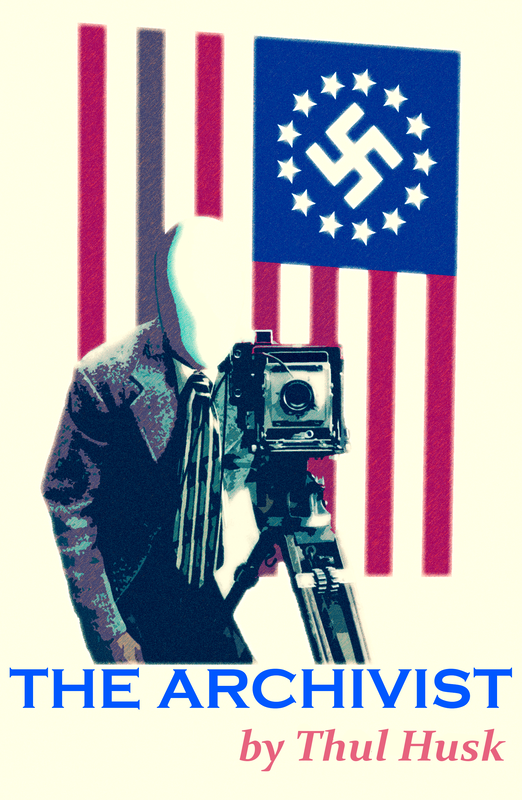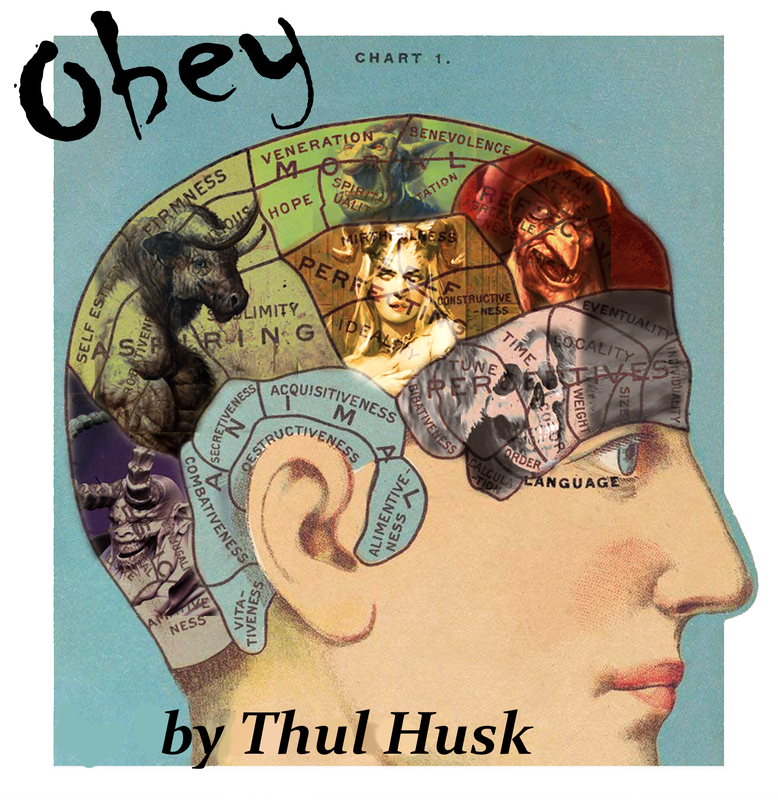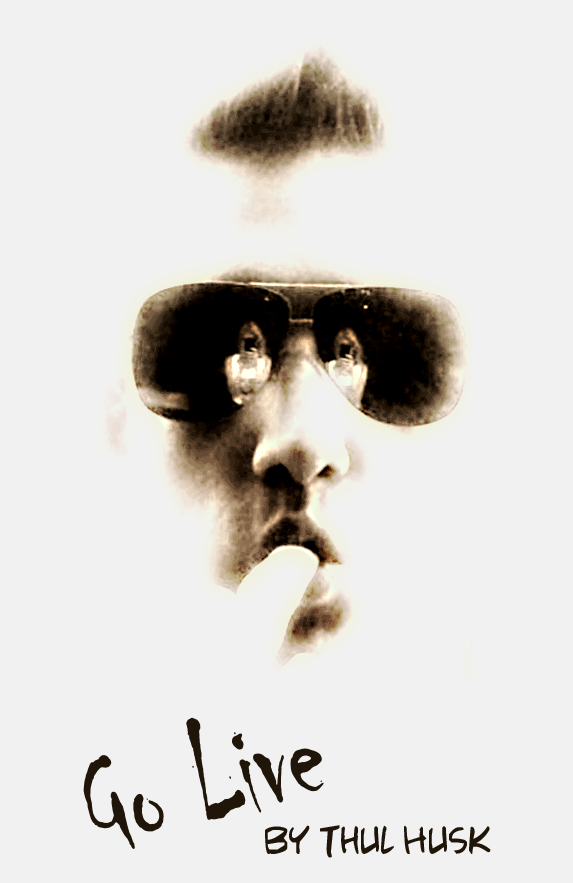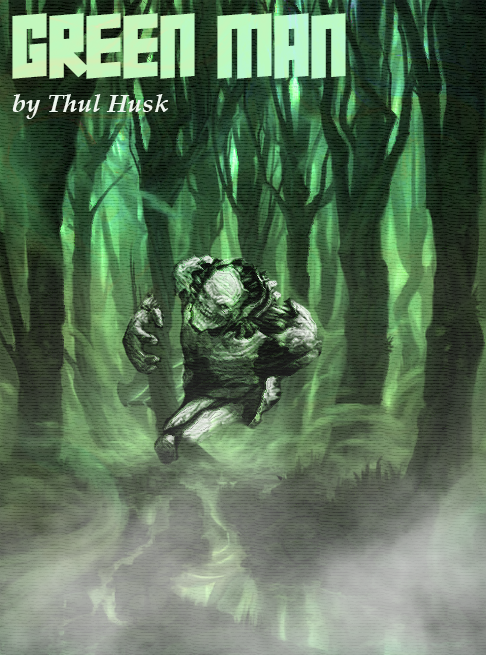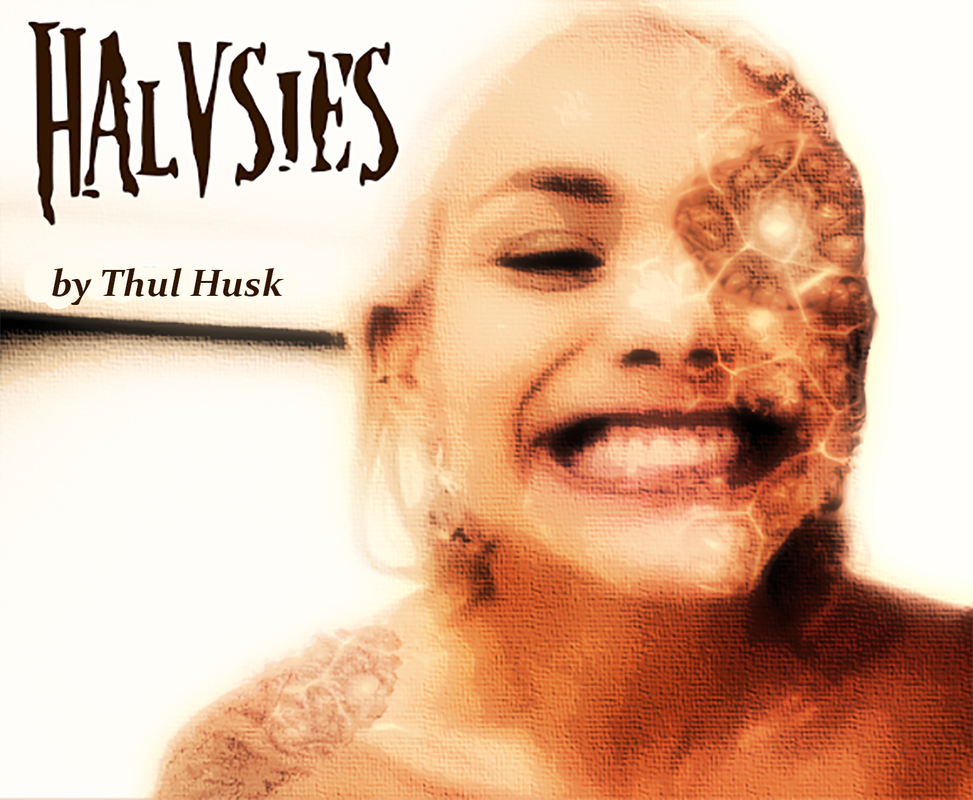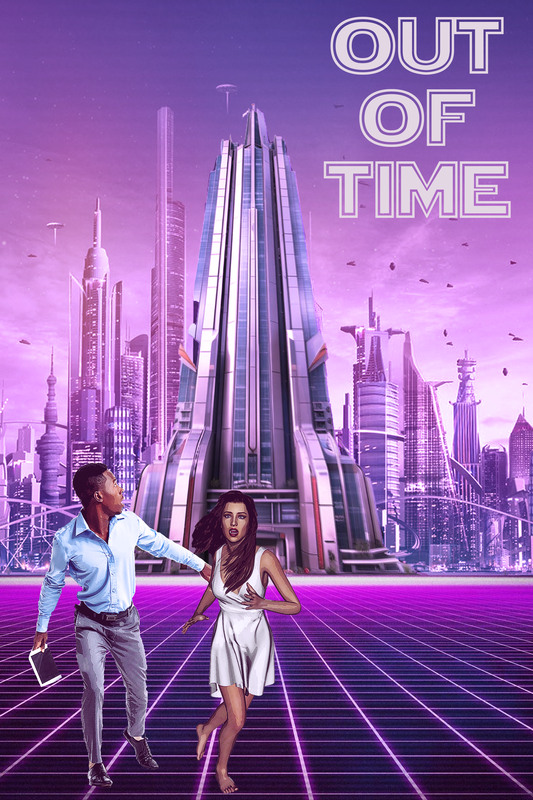Screenwriting
I have developed several pseudonyms over the years, including, O. Bannon and Thul Husk. The poster images for the screenplays are more examples of my graphic design work. The genres for these four sample scripts is psychological horror, however, I have written dozens of feature-length screenplays in a variety of genres, including comedy, science fiction, crime thriller, etc.
I write very quickly and edit during the writing process which is a technique I developed to ward off the notorious "writer's block". I have only made a handful of my stories public because since 2011 given I became a full-time professional student and focused my writing on scholarly work. I hope to shift focus to creative writing moving forward. Near the bottom of this page is professional coverage I received in 2015 for two of my scripts courtesy Hollywood screenwriters at BlueCat.
I write very quickly and edit during the writing process which is a technique I developed to ward off the notorious "writer's block". I have only made a handful of my stories public because since 2011 given I became a full-time professional student and focused my writing on scholarly work. I hope to shift focus to creative writing moving forward. Near the bottom of this page is professional coverage I received in 2015 for two of my scripts courtesy Hollywood screenwriters at BlueCat.
The ArchivistTagline: Media archivist, Tim Rose, discovers that one of the world's most celebrated movie directors is the leader of a dangerous underground cult.
| |||
ObeyTagline: A young man must face the evil of the Darkverse to prove to himself and others that he is not schizophrenic.
| |||
GO LIVETagline: A sinister alien force is using the tragedies of the human race as entertainment and a twelve-year-old girl is called upon to stop them.
| |||
GREEN MANTagline: An unholy killing in 1961 spawns an avenging monstrous and eternal terror from the darkest part of a forest.
| |||
Professional Coverage
Several years ago, I submitted two of my scripts to a premier screenwriting contest - BlueCat. "The Archivist" (old version) made it to the top 10% (5000 overall submissions in the contest). Here is some excerpts from the professional BlueCat reader coverage for the 2015 version of The Archivist and Go Live. I would like to think that these two screenplays have improved with the 2023 rewrite.
"The Archivist" - Professional Coverage (BlueCat)
You have constructed a probing, unconventional, intelligent film script that achieves the bulk of what it sets out to do. To begin with, you utilize very effective scene descriptions that not only keep your script moving at a steady pace, but also don’t bog your reader down with unnecessary details. Additionally you manage to shade in subtle characterization details through your descriptions, which is always beneficial.
Juxtaposing the beginning of your script with Sonattah’s film is not only smart and economical, but it’s also a healthy way to set the scene and fill in all of this backstory. It works well and feels motivated rather than obstructive, and the same can be said for the police’s questioning of Tim Rose, priming the audience on his situation simultaneously. Furthermore, playing the themes of Mozart against what’s going on with Rose and Sonattah is also structurally sound.
It’s appreciated that you’re not afraid to take your script to some dark places and don’t sugarcoat any of this murder and tragedy. This is a world where you make it clear that there are consequences to actions, and that people are going to get hurt. There are some truly brutal actions in here that help push all of this material further and highlight the severity of what’s being dealt with.
There’s a nice sense of humor coursing through your script where not only do the majority of the jokes that you attempt land, but more importantly they all feel deeply rooted in your characters and the tonality of your script, which is not always an easy thing to achieve. This also helps create a welcome balance to a lot of the starker material in your script, too.
Your script does a commendable job at how it slowly ekes out the details of this mystery and just what is going on. You have complete control over it, and you pace it out well, while still making the audience hungry for more. It’s a difficult balance, but you find it well.
In terms of characterization and dialogue, you do decent work with Rose, Sonattah, Irwin, Jean, and the rest of your cast, digging deep enough into them, fleshing them out accordingly, and keeping them consistent through the course of your script. You don’t go overboard in these areas, but you show a lot of who these people are by their actions. You establish a shocking degree of shorthand with Rose, for instance, just by showing how he carries himself. It’s always better to show your audience details rather than outright telling them to them, and it’s clear that you understand that. More than anything, the audience is rooting for Rose and wants to see him persevere through this when the legal proceedings end up getting worse and worse. Similarly your dialogue works well and feels more utilitarian than anything. It does what it needs to do while properly reflecting these characters, but you also get a real patter going, and watching these people bounce back and forth off of each other, lost in topic, is a delight.
Lastly, your ending works incredibly well and feels like the perfect note to go out on. Rather than oversimplifying things or having a neatly tidied up conclusion, it’s appreciated that you leave matters more ambiguous and open. Audiences can reach their own conclusions and connect the dots that you properly set up for them. It’s a satisfying closer than not only feels earning and faithful to the rest of your script, but it keeps the suspense and tension rampant right until the end.
You have constructed a probing, unconventional, intelligent film script that achieves the bulk of what it sets out to do. To begin with, you utilize very effective scene descriptions that not only keep your script moving at a steady pace, but also don’t bog your reader down with unnecessary details. Additionally you manage to shade in subtle characterization details through your descriptions, which is always beneficial.
Juxtaposing the beginning of your script with Sonattah’s film is not only smart and economical, but it’s also a healthy way to set the scene and fill in all of this backstory. It works well and feels motivated rather than obstructive, and the same can be said for the police’s questioning of Tim Rose, priming the audience on his situation simultaneously. Furthermore, playing the themes of Mozart against what’s going on with Rose and Sonattah is also structurally sound.
It’s appreciated that you’re not afraid to take your script to some dark places and don’t sugarcoat any of this murder and tragedy. This is a world where you make it clear that there are consequences to actions, and that people are going to get hurt. There are some truly brutal actions in here that help push all of this material further and highlight the severity of what’s being dealt with.
There’s a nice sense of humor coursing through your script where not only do the majority of the jokes that you attempt land, but more importantly they all feel deeply rooted in your characters and the tonality of your script, which is not always an easy thing to achieve. This also helps create a welcome balance to a lot of the starker material in your script, too.
Your script does a commendable job at how it slowly ekes out the details of this mystery and just what is going on. You have complete control over it, and you pace it out well, while still making the audience hungry for more. It’s a difficult balance, but you find it well.
In terms of characterization and dialogue, you do decent work with Rose, Sonattah, Irwin, Jean, and the rest of your cast, digging deep enough into them, fleshing them out accordingly, and keeping them consistent through the course of your script. You don’t go overboard in these areas, but you show a lot of who these people are by their actions. You establish a shocking degree of shorthand with Rose, for instance, just by showing how he carries himself. It’s always better to show your audience details rather than outright telling them to them, and it’s clear that you understand that. More than anything, the audience is rooting for Rose and wants to see him persevere through this when the legal proceedings end up getting worse and worse. Similarly your dialogue works well and feels more utilitarian than anything. It does what it needs to do while properly reflecting these characters, but you also get a real patter going, and watching these people bounce back and forth off of each other, lost in topic, is a delight.
Lastly, your ending works incredibly well and feels like the perfect note to go out on. Rather than oversimplifying things or having a neatly tidied up conclusion, it’s appreciated that you leave matters more ambiguous and open. Audiences can reach their own conclusions and connect the dots that you properly set up for them. It’s a satisfying closer than not only feels earning and faithful to the rest of your script, but it keeps the suspense and tension rampant right until the end.
"Go Live" - Professional Coverage (BlueCat)
While it is decidedly not for everyone (which is perhaps the most reductive possible understatement), there is absolutely no denying that "Skullwinder and Other Atavistic Anomalies" is an incredibly original screenplay. It is a sharp, intelligent, and fascinating demonstration of a unique authorial style, and no reader could ever claim to have read something like it before.
While some may make over-simplistic David Lynch comparisons, there is a stylistic playfulness and unabashed intellectualism to this script that elevates it into a whole new realm, and it is wonderful (and respectable) to see the writer play with form and medium so much. Such pointed flourishes/stylistic choices as the snaps to black and white or the cigarette burn moment take full advantage of the filmic medium, and it's impressive to see a script that is so aware of the cinematic possibilities it can explore.
Gabby is a fascinating audience surrogate whose sudden bursts of maturity (as well as her constant confusion) are somehow cohesive and intuitively appropriate, and the ubiquitous Dusan and the titular Skullwinder are equally enigmatic and memorable. The script operates on a decidedly intuitive level, and while the lack of a conventional narrative will be problematic for some, there is an emotional, almost intangible throughline that manages to hold the script together in a surprisingly effective way. The script's brevity is a pragmatic choice that is definitely to be respected, and there is a propulsive energy to the various vignettes and reflexive mirror scenes that forms a compelling structure. While some would say the script possesses a dream logic, a more appropriate term may be "nightmare logic," a phrase that must be utilized in the most flattering way possible. A wholly impressive work, "Skullwinder and Other Atavistic Anomalies" is arrestingly, even aggressively original, and one would be hard-pressed to find a script that sticks more in the mind than this one...
While it is decidedly not for everyone (which is perhaps the most reductive possible understatement), there is absolutely no denying that "Skullwinder and Other Atavistic Anomalies" is an incredibly original screenplay. It is a sharp, intelligent, and fascinating demonstration of a unique authorial style, and no reader could ever claim to have read something like it before.
While some may make over-simplistic David Lynch comparisons, there is a stylistic playfulness and unabashed intellectualism to this script that elevates it into a whole new realm, and it is wonderful (and respectable) to see the writer play with form and medium so much. Such pointed flourishes/stylistic choices as the snaps to black and white or the cigarette burn moment take full advantage of the filmic medium, and it's impressive to see a script that is so aware of the cinematic possibilities it can explore.
Gabby is a fascinating audience surrogate whose sudden bursts of maturity (as well as her constant confusion) are somehow cohesive and intuitively appropriate, and the ubiquitous Dusan and the titular Skullwinder are equally enigmatic and memorable. The script operates on a decidedly intuitive level, and while the lack of a conventional narrative will be problematic for some, there is an emotional, almost intangible throughline that manages to hold the script together in a surprisingly effective way. The script's brevity is a pragmatic choice that is definitely to be respected, and there is a propulsive energy to the various vignettes and reflexive mirror scenes that forms a compelling structure. While some would say the script possesses a dream logic, a more appropriate term may be "nightmare logic," a phrase that must be utilized in the most flattering way possible. A wholly impressive work, "Skullwinder and Other Atavistic Anomalies" is arrestingly, even aggressively original, and one would be hard-pressed to find a script that sticks more in the mind than this one...
Next Project: "Halvsies"
|
It isn't easy to come at the zombie subgenre of horror with a novel angle, however, I hope to have achieved an original concept with my "Halvsies" script. In this fictional Earth, there are "full" zombies, normal humans, and then "halvsies". The halvsies zombies are capable of being part of the status quo, provided that they have a cannibal diet of brains (cloned humans). The advantage to integrating the halvsies to regular society is that they are capable of working twenty-hour days efficiently. The powers-that-be pushed a cultural program for regular society so that they would accept the halvsies, and thus the elites reaped the reward of cheap, ultra-efficient labor. However, some of the halvsies are beginning to develop greater awareness of their worth to society, and they are seeking new opportunities outside of being work horses.
|
Deserted Projects
"Deserted" is a bit of an extreme term and I can't say for sure whether these writing projects will be completed in the future, however, these are screenplays that I worked on and have now been put aside. Out of Time and Mr. X were written in 2023, however, The Verses was written in 2006 and rewritten in 2018, and Alien: Isis was written before Prometheus was announced, but I rewrote it and reworked the story. See the Stories page on this website for details on these stories.
|
OUT OF TIME: scifi AI story started for UCLA Screenwriting program
MR. X: scifi AI story submitted for UCLA Screenwriting program application
ALIEN - ISIS: scifi Xenomorph story originally a prequel to Alien (1979) but modified
THE VERSES: horror story and complete script written in 2006 and rewritten in 2018
| |||||||||
